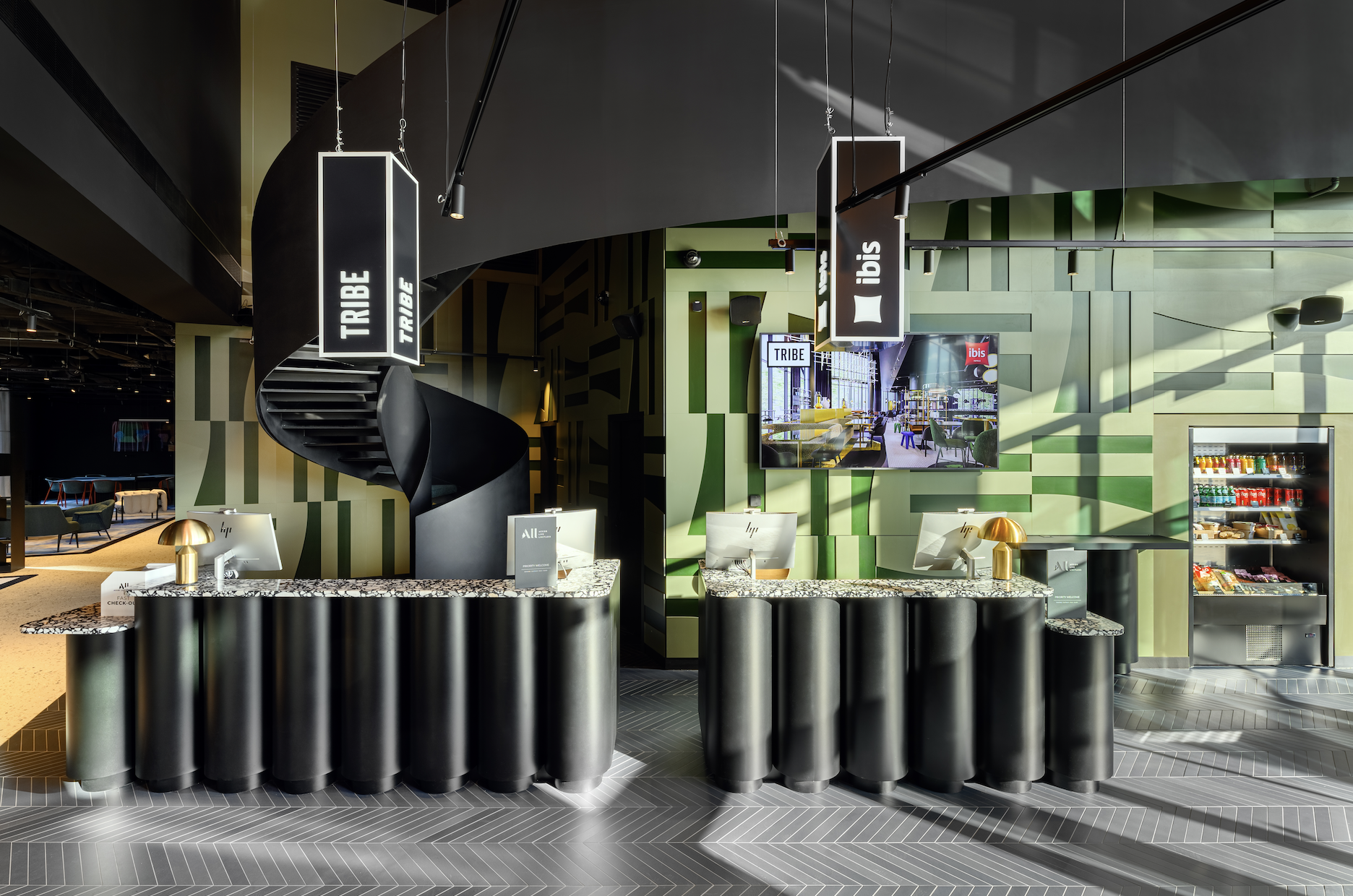Hotel Market Talk: Surviving Coronavirus

We know the hospitality sector has been hard hit by the COVID-19 pandemic, but how bad is it? The Budapest Business Journal organized a roundtable with three of the leading hoteliers in Budapest, Jonathan Pace of Corinthia Hotel Budapest, Stephan Interthal of Kempinski Hotel Corvinus Budapest, and Arne Klehn of the Marriott International brands, to get a fuller picture.
Jonathan Pace
BBJ: What has been the impact of the pandemic on your business in Budapest?
Jonathan Pace: Regretfully, the impact has been devastating. We were gearing up for the conference season when, all of a sudden, we ended up without guests, all in a couple of days. The hotel remained open, albeit with little movement
Stephan Interthal: From approximately February 21, the international meetings and travel activities collapsed. Then everything happened quickly: on March 4 the first coronavirus cases were confirmed in Hungary; on March 11, the state of emergency status was declared; and on March 16 the borders were closed. During this period our entire business collapsed almost completely. All reservations until the second quarter were canceled. Since March 18, our rooms have been almost empty. It is expected be the same in June. During the time of lockdown, our ÉS Bisztró and ÉS Deli have offered a takeaway service.
Arne Klehn: Within a couple of days in early March, 90% of our 2020 reservations have been either canceled or rebooked for 2021. We decided to remain open for those guests who would need hotel accommodation in Budapest. Our occupancy was minimal in the past period and it is expected to be very soft for the upcoming weeks.
BBJ: Have you had to furlough or lay off staff?
JP: We have so far managed to retain our colleagues, partly thanks to the government assistance, but also through the unwavering commitment of our company, which has put the wellbeing of our family of colleagues at the forefront of every decision we had to take. We are sad that this pandemic has brought so much hardship on so many families; however, we will weather this, and stick together to rebuild the business and our lives
SI: We laid off only 10 employees at the end of their trial period. We also had a few temporary contracts that have not been renewed. More importantly, we confirmed all labor contracts of our remaining 255 staff members.
AK: Changes in the taxation helped us a lot, we introduced temporary employment contracts with decreased salaries for all employees including the executive committee, plus, we have applied for the government aid also. Until today, we have been able to secure almost all jobs for our associates.

Stephan Interthal
BBJ: Do you have any insight as to when you will be able to welcome foreign guests again?
JP: We are monitoring the government’s easing of restrictions daily, and we are waiting to see the effects brought by the reopening of the borders. Once we feel confidence in travel starts to resume, we will be here, eagerly waiting for our guests to enjoy our hospitality once again.
SI: We hope that in the third quarter, July and August, we can achieve a 20% room occupancy. From September to the end of the year, some business and tourism travelers may come back slowly.
AK: Since we are open, we are welcoming them even today, although at a very low number. According to our forecasts, we expect the number of individual guests to start to increase as of mid-summer. Unfortunately, we don’t see that timing for events, especially for the international events; they will start to come back only as of 2021.
BBJ: How are you going about reopening? Have you found new business opportunities?
JP: We are slowly reopening our restaurants and we have reviewed our operating standards, to ensure our operation is tweaked down to the very detail, keeping the safety of our guests and colleagues as an absolute priority.
SI: We didn’t sit idle waiting for the end of the crisis. We prepared ourselves in a focused and targeted manner for the “rebound”. We have to look for new opportunities, keep an eye out for markets who are interested and deal more with them. We try to get one or two additional percent from the domestic market as well.
AK: While our hotel is in operation, we are about to finalize the implementation of Marriott’s latest cleaning protocols and safety measurements. Furthermore, we focus on reopening our DNB Restaurant and its terrace. We have also put great focus on its home delivery service, which is a great success! Last, but not least, we managed to define another new business opportunity: we will have a great surprise for Budapest later on, but the secret will only be revealed around mid-June!
BBJ: What are your expectations for the rest of this business year?
JP: There is no doubt that this will be a slow and painful recovery; however, we remain optimistic. Traveling has evolved from a luxury to a lifestyle, and we have no doubt people will start traveling again soon
SI: For the rest of this year we do not expect any serious MICE business, because there will simply be no major meetings or events in the city. We think that Formula 1 will happen this year, and will take place at the Hungaroring; however, it will be without any spectators. As of September, we expect individual business travelers to come back. We anticipate that we will run with occupancy of 30 to 40% from September to yearend.
AK: It is going to a very challenging period not only for us but for all my hotelier colleagues all over Europe. We will be struggling with the low demand, but are confident that we will return stronger than ever after that.
BBJ: Do you think the government has been supportive enough of your industry?
JP: There is no doubt it has been challenging for every government to find a balance between priorities relating to health, and the effects of the pandemic on the economy. The Hungarian government has risen to this occasion and we are extremely grateful for the support shown to us during these difficult times
SI: It helped us that Hungary launched its first-aid packages on March 18. Also helpful was the credit moratorium until the end of the year. Likewise, we also use the recently introduced short-time working “Kurzarbeit” solution from May for three months.
AK: We have fully utilized the possibilities and were able to navigate so far. For the rest of the year, in terms of government support, dividing the hotel sector into Budapest and Countryside may be considered. Countryside hotels will benefit from the additional domestic demand, while for Budapest the demand will still not be there.
BBJ: What have you been doing to support the community during this time?
SI: Independent of corona, we have continued with our regular charity activities during the past months. We continue to support our two children’s homes with a larger grocery delivery every two weeks.
AK: Together with other Marriott hotels in Hungary and Hertz Car Rental, we coordinated a donation worth HUF 3.5 million to health institutions. Our DNB Budapest restaurant also supported the work of the National Ambulance Service with a HUF 1,300 donation for each of its Easter food home deliveries. In addition, we are preparing 50 meals for the staff of Szent László Hospital (an isolation hospital in Budapest for those with COVID-19) and the National Korányi Institute of Pulmonology every week until the end of June.

Arne Klehn
SUPPORT THE BUDAPEST BUSINESS JOURNAL
Producing journalism that is worthy of the name is a costly business. For 27 years, the publishers, editors and reporters of the Budapest Business Journal have striven to bring you business news that works, information that you can trust, that is factual, accurate and presented without fear or favor.
Newspaper organizations across the globe have struggled to find a business model that allows them to continue to excel, without compromising their ability to perform. Most recently, some have experimented with the idea of involving their most important stakeholders, their readers.
We would like to offer that same opportunity to our readers. We would like to invite you to help us deliver the quality business journalism you require. Hit our Support the BBJ button and you can choose the how much and how often you send us your contributions.








